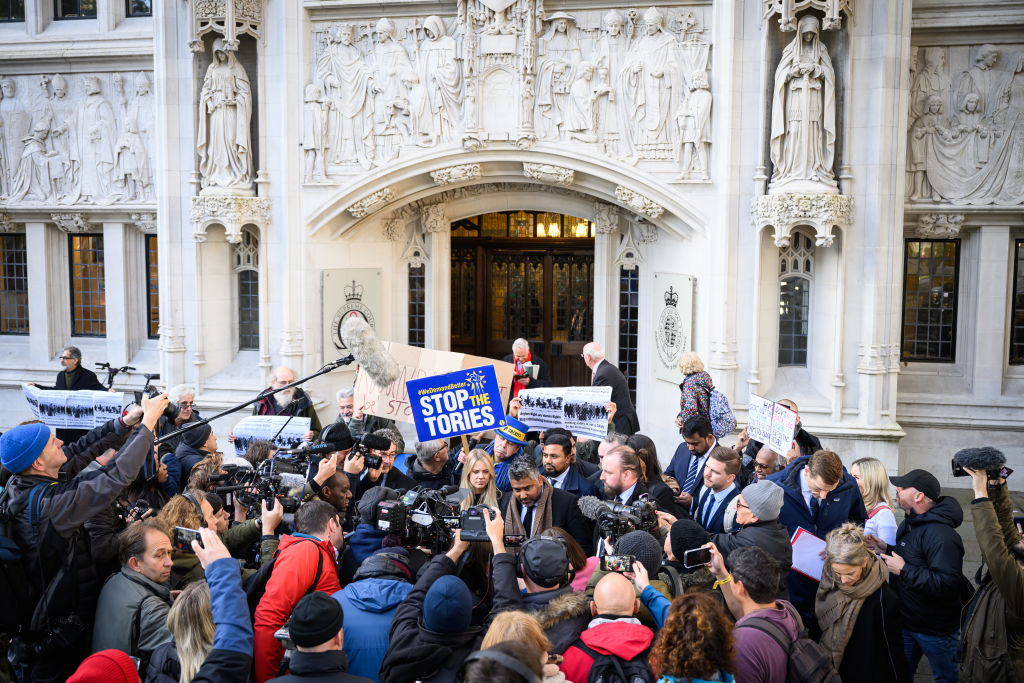This morning, the Supreme Court upheld the Court of Appeal’s judgment on the Rwanda plan and declared that the scheme is unlawful. The Court of Appeal had said that the principle of sending asylum seekers to foreign countries was unexceptionable. But the courts had to decide if Rwanda was likely to be a safe country which would not mistreat asylum seekers, or send them on to third countries where they would face mistreatment. It determined that Rwanda was not safe. The Supreme Court’s decision was, broadly, that the Court of Appeal had been right to take that line, and that the justices agreed with it.
This decision is not particularly good news for believers in democracy, or those who believe elected authorities should have the right to police borders.
For one thing, for all the smooth reasoning in the judgment, the result was not a foregone conclusion. The issue of asylum seekers’ rights involves navigating gingerly through a forest of international instruments – not only the European Convention on Human Rights, but also UN treaties such as the 1951 Refugee Convention, the 1966 International Covenant on Civil and Political Rights and the 1984 UN Convention against Torture. There are various oblique ways these instruments have been made relevant to UK domestic law by our own legislation. Had it wanted to do so, the court could have taken the hint from the first judgment, downplayed the interpretation of the international instruments and instead emphasised that the intention of our legislation was to give the greatest weight to the elected Home Secretary’s judgement, unless this could be attacked as irrational.
Secondly, the Supreme Court left little doubt where its sympathies lay. It made it clear that it agreed with the Court of Appeal’s assessment of the evidence, which it described at length. And it said, in contrast to its attitude toward the Home Secretary, that the High Commissioner for Refugees’ evidence had to be accorded much greater weight.
Thirdly, the decision sits slightly uncomfortably with the assumption that governments, and not the courts, are best placed to manage diplomacy. A lot of the Supreme Court’s argument concerned a solemn assurance given by the government of Rwanda in Kigali to the Foreign Office about the treatment of any asylum seekers sent there. The court, it is fair to say, was sceptical. It essentially suggested that even though the assurance had been given and accepted in good faith, previous events suggested the promise would not be observed. Further: ‘even if the court is not institutionally as well equipped as the government to carry out an evaluation of a diplomatic assurance, the position is different where the assessment of future conduct engages practical considerations which arise from past conduct.’ Our man in Kigali may find it somewhat awkward to have to explain to the Rwandan foreign minister that our highest court believes that his word very likely cannot be trusted.
What of Rishi Sunak’s beleaguered government? This decision is obviously a big headache for it, particularly since little planning seems to have been done for this reverse. And because both Rishi Sunak and the new Home Secretary James Cleverly have for the moment publicly backed away from withdrawing from the ECHR. (It is also a pretty foregone conclusion that David Cameron at the Foreign Office is of like mind.)
But the news need not be all bad. Even if the decision had gone the government’s way, there would still have been large delays. Furthermore, the principle of sending asylum seekers abroad remains lawful, and indeed has been broached by other countries, such as Denmark and Australia. There are still possibilities for arrangements with states other than Rwanda (or possibly UK territories abroad), or for some rejigging of the arrangements with Rwanda to alleviate the justices’ concerns. A formal treaty, for example, has been suggested to replace the present assurance, something that could change matters.
In short, this is a delay, and one that Rishi can ill afford as we move towards an election in 2024. But it is not a complete defeat. Something has to be done about the problem of uncontrolled movement across our borders, as even Keir Starmer must realise. A solution of some sorts will eventually be found, although it may still be further away than we think.






Comments